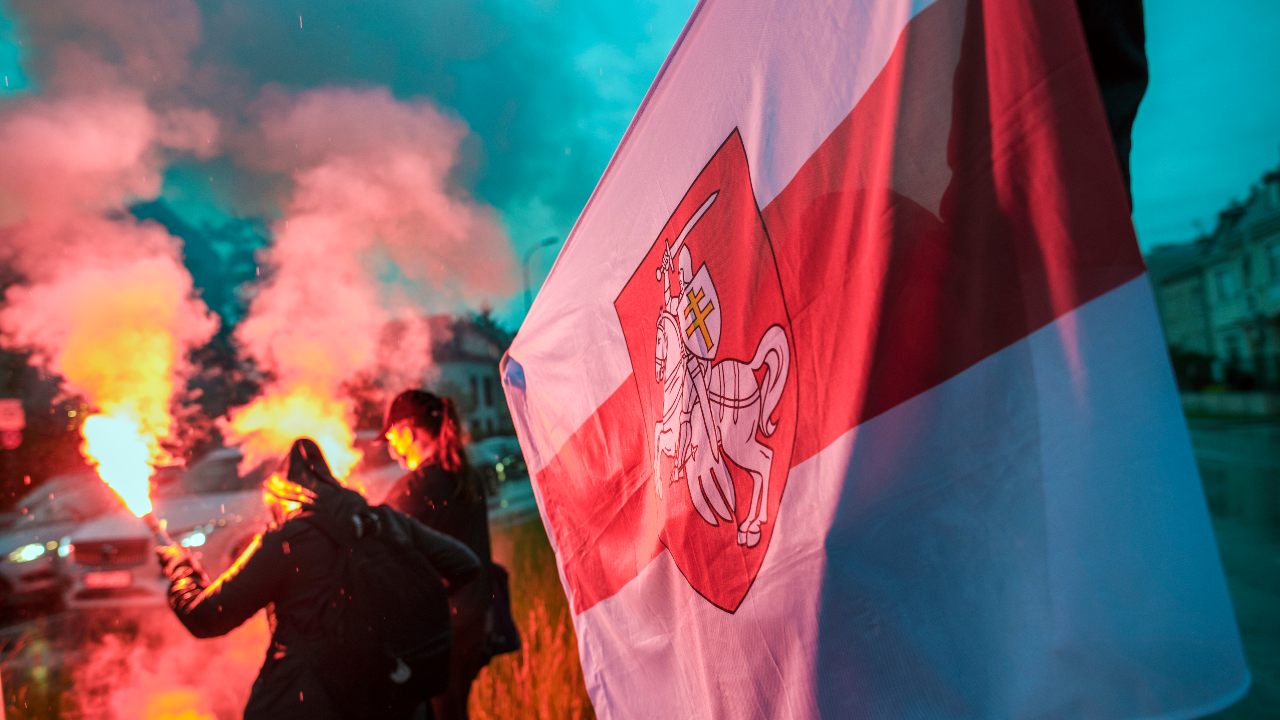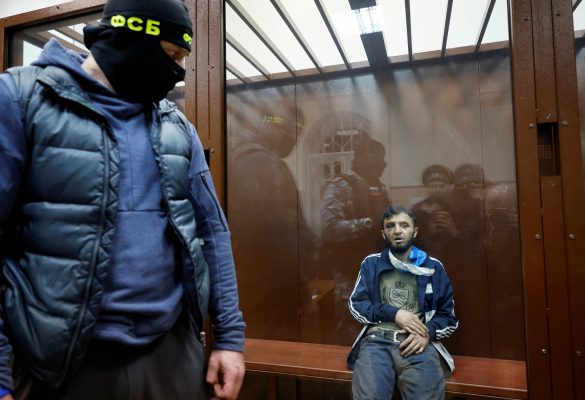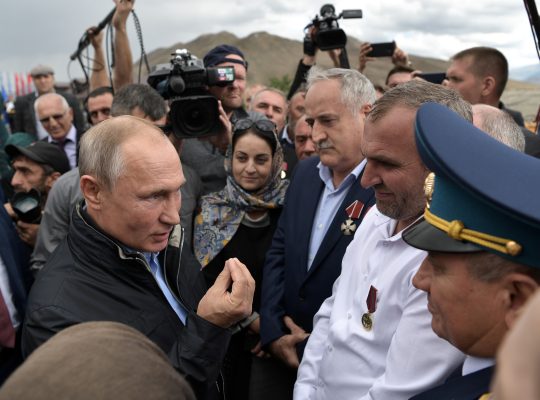A year after Aliaksandr Lukashenka stole the Belarusian presidential election, the opposition has suffered unprecedented repression, with most of its leaders thrown behind bars or into exile, while thousands of political activists have fled the country. There is a clear understanding among Belarusian civil society that their struggle will be a long one, and yet most have vowed to fight on.
Such tenacity can be partly explained by the fact that the opposition that emerged in the wake of the 2020 election campaign is new and mostly young. It is less willing to accept defeat, and unlike the old opposition, it is more organized and united. Propped up by support from the West, these new groups managed to pick themselves up after the election clampdown, re-organize, and carry on the fight, even if mainly from abroad.
The widespread use of social media is playing a crucial role in helping opposition leaders overcome their physical absence from Belarus, which might have proven a greater weakness just a few years ago. And there are clear signs that they have an audience, albeit in a very different form from the huge protests of 2020. This week, for example, Franak Viačorka, a senior adviser to opposition leader Sviatlana Tsikhanouskaya, tweeted an image of Belarusian banknotes modified with hand-drawn red and white flags. Such tactics are hard to counter and very effective in signaling anti-government feelings.
The new opposition is broadly centrist, promulgating general beliefs in democracy, the rule of law, and economic freedoms, as well as the country’s independence. It is organized into three main groups, which center around the 2020 united opposition presidential candidate Tsikhanouskaya, the senior-government-official-turned-opposition-leader Paval Latushka, and the former banker Viktar Babaryka. Although each has its own political niche, the groups meet regularly and coordinate their activities.
- The most liberal, exemplifying a higher degree of tolerance and respect towards individual rights and freedoms as well as a championing of free-market ideas, centers around Babaryka. Although he is serving a 14-year sentence in a penal colony on trumped-up charges, he remains the most popular presidential candidate to date (34% think he would make a good president.) The group’s core support is the middle class, but it has a much wider appeal, including the intelligentsia, the working class, business, pensioners, and others. It is the only opposition faction operating inside Belarus. It is establishing a new political party called Razam (Together) and has received over 7,000 applications for membership. With 2,500 vetted core supporters, it is currently establishing a regional network and organizing political discussion events, albeit online only due to the high risks of arrest.
- Tsikhanouskaya’s office is based in the Lithuanian capital, Vilnius. It is primarily engaged in international lobbying efforts against the Lukashenka regime and in support of the victims of repression and a reform agenda for a democratic Belarus. Some of Tsikhanouskaya’s policy advisers come from the old opposition.
- People’s Anti-Crisis Management, led by Paval Latushka, is based in Warsaw. Its focus is reaching out to public officials in Belarus. Much of Management’s work is also done by ByPol, a group of siloviki (representatives of security services) who have defected. They carry out investigations into rights abuses and other wrongdoings of the Lukashenka regime, based on leaks they receive from government structures inside Belarus.
Riding on the back of Lukashenka’s precipitous popularity slump (his current rating is around 25%), the new opposition managed to awaken a politically apathetic public, engaging it in a variety of civic initiatives, including election monitoring, pre- and post-election protests, and the establishment of local organizations. This showed that although the public was mistrustful of the old opposition, it was ready to support new faces.
However, there is a recognition among the democratic opposition that ending Lukashenka’s 27-year-old dictatorship will be a marathon. One of the most difficult tasks is reaching out to the political elites and nurturing defections. The system of governance in Belarus is both highly centralized and exclusive of any dissenting views.
Shortly after coming to power in 1994, Lukashenka disbanded the democratically elected parliament and then, by falsifying subsequent votes, appointed a rubber-stamp successor composed of loyalists. Since then, he has barred opposition representatives from any state bodies. This is a contrast to many other former Soviet republics: for example, in Ukraine during the Orange revolution, opposition political parties sat in parliament whilst their presidential hopeful, Viktor Yushchenko, had previously served as prime minister. Similarly, Lukashenka canceled the election of governors and mayors and set up a sprawling and highly centralized presidential administration, which directly appoints all local authorities down to the village level.
Another challenge for the new opposition is to motivate the public to build a strong following in a harsh authoritarian setting. As political newcomers, these people have not yet acquired the skills that would enable them to transform themselves into a formidable political movement. It will not be easy to formulate an exciting vision of a post-Lukashenka Belarus that would be backed up by a persuasive and imaginative program of policy proposals.
The Belarusian public tends to distrust political parties (a 2017 poll showed that only 30% had faith in such organizations). This can be traced to Lukashenka’s work to wipe out any political institution seeking to communicate directly with the people. There has never been a party of power in Belarus, and the Belarusian parliament is not organized along party lines. Independent political parties have been routinely attacked and smeared. Their criticism of Lukashenka fell on deaf years, as initially, rising living standards maintained his popularity (for example, in 2006, 52.6% said they would vote for him.) Independent political parties were incapable, though, of running the country, and their membership was minute.
It is one more fact of Belarusian political life that the opposition will have to overcome.




